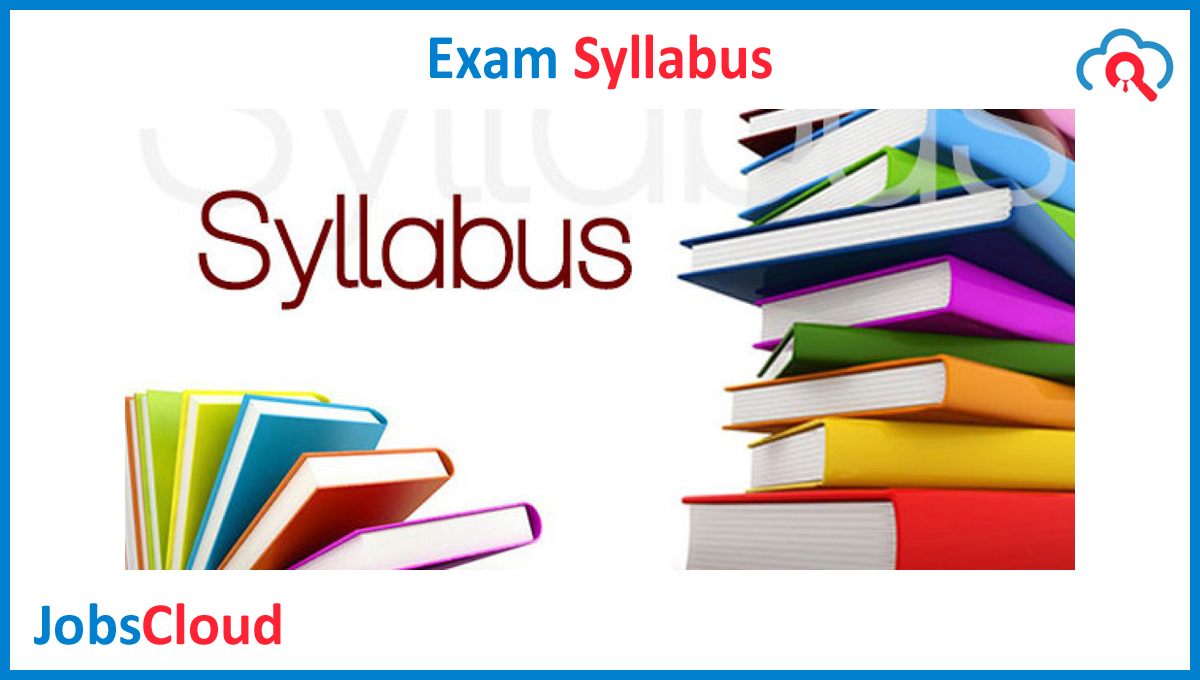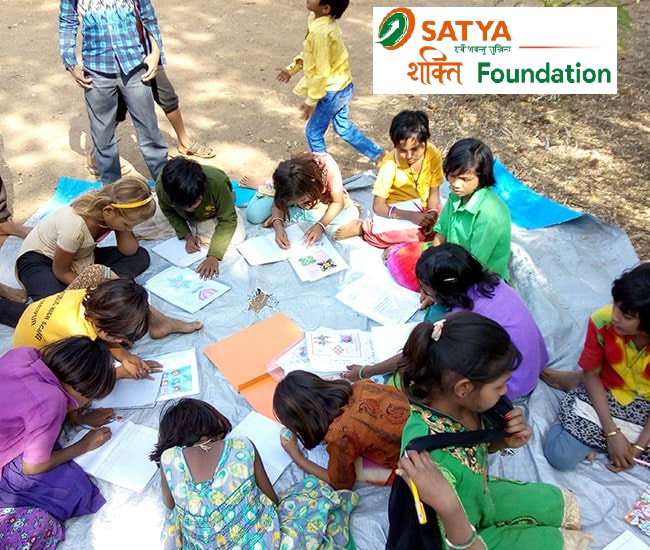The GATE syllabus is now on the official website. The authorities have released the exam date and syllabus to help students start their preparation ASAP. If you are also a GATE aspirant looking forward to getting that perfect score, then you must have a study plan NOW. In this article, we have combined two of the very important subjects – CE and ME. Read ahead to uncover the syllabus for them.
GATE Syllabus for Civil Engineering (CE)
There will be mainly two sections in the GATE Civil Engineering question paper – Engineering Mathematics and General Aptitude. You can refer to various reference books and articles to cover the syllabus. Here, we have mentioned all the important topics chapter-wise. You can also check out the full GATE syllabus for civil engineering or download the pdf to check everything in detail.
| Subjects | Topics |
| General Aptitude (Mandatory) | Numerical Ability Syllabus Numerical Estimation Numerical Computation Data Interpretation Numerical Reasoning, etc. Verbal Ability Syllabus Sentence Completion English Grammar Word Groups Instructions Verbal Analogies Verbal Deduction Critical Reasoning, etc. |
| Engineering Mathematics (Mandatory) | Calculus Linear Algebra Statistics and Probability Partial Differential Equation (PDE, Ordinary Differential Equation (ODE) Numerical Methods |
| CE Structural Engineering | Construction Materials and Management Solid Mechanics Structural Analysis Concrete Structures Engineering Mechanics Steel Structures |
| CE Environmental Engineering | Water and WasteWater Municipal Solid Wastes Air Pollution |
| CE Transportation Engineering | Highway Pavements Transportation Infrastructure Traffic Engineering |
| CE Syllabus for Geotechnical Engineering | Soil Mechanics Foundation Engineering |
| CE Water Resources Engineering | HydraulicsHydrology Irrigation Fluid Mechanics |
| CE Syllabus for Geomatics Engineering | Remote Sensing Principles of SurveyingPhotogrammetry |
GATE Mechanical Syllabus (ME) for 2022
The students who are looking forward to the upcoming GATE 2022 exam must check all the details of the GATE mechanical syllabus for better preparation of all the relevant topics in the exam. Check the syllabus below or download the pdf to understand better:
| Particulars | Topics |
| Section #1: Engineering Mathematics | Linear Algebra – Matrix algebra, Linear equations, eigenvectors, and eigenvalues. Differential Equations – Nonlinear and Linear, initial and boundary value problems; Euler-Cauchy equation; Laplace transforms and Laplace’s equations; higher-order linear differential equations along with constant coefficients, solutions of heat, wave. Calculus – Functions of a single variable, continuity, limit, and differentiability, indeterminate forms, mean value theorem; Evaluation of definite and improper integrals; triple and double integrals; partial derivatives, total derivative, minima and maxima, Fourier series, Taylor series (in two and one variables); divergence and curl, vector identities, gradient, directional derivatives, volume, surface, and line integrals, Green’s theorems, Applications of Gauss, Stoke. Statistics and Probability – Probability, conditional probability, standard deviation, mean, median, mode; binomial, random variables, Poisson and normal distributions; sampling theorems. Numerical Methods – Integration by trapezoidal and Simpson’s rules; Numerical solutions of non-linear and linear algebraic equations; multi & single step for differential equations. Complex variables – Analytic functions, Cauchy’s integral theorem & integral formula; Cauchy-Riemann equations; Taylor and Laurent series. |
| Section #2: Applied Mechanics and Design | Engineering Mechanics – Frames and trusses; equilibrium, free body diagrams virtual work; momentum and impulse (angular and linear), dynamics and kinematics of rigid bodies & particles in a plane motion, collisions, energy formulations. Mechanics of Materials – Strain and Stress, Elastic constants, thin cylinders, Poisson’s ratio, Mohr’s circle for plane strain and plane stress, bending moment diagrams, shear force, bending and shear stresses, deflection of beams, thermal stresses, energy methods, torsion of circular shafts, Euler’s theory of columns, testing of materials with the universal testing machine, testing of impact strength and hardness, strain gauges and rosettes.Theory of Machines – Velocity, displacement, and acceleration analysis of plane mechanisms, gear trains and gears, cams, governors and flywheels, dynamic analysis of linkages, balancing of rotating and reciprocating masses, gyroscope.Vibrations – Forced and free vibration of single degree of freedom systems, Effect of damping, vibration isolation, resonance, critical speeds of shafts.Machine Design – Failure theories, Design for dynamic and static loading, the S-N diagram, fatigue strength, principles of the design of machine elements like bolted, riveted, and welded joints, shafts, gears, rolling, and sliding contact bearings, brakes, springs, and clutches. |
| Section #3: Thermal Sciences and Fluid Mechanics | Heat-Transfer – Modes of heat transfer, one-dimensional heat conduction, heat transfer through fins, Heisler’s charts, lumped parameter system, electrical analogy & resistance concept, unsteady heat conduction, dimensionless parameters in forced and free convective heat transfer, heat transfer correlations for flow through pipes and over flat plates, thermal boundary layer, heat exchanger performance, NTU & LMTD methods, the effect of turbulence, radiative heat transfer, Stefan-Boltzmann law, view factors, Wien’s displacement law, radiation network analysis and grey and black surfaces. Fluid Mechanics – Fluid statics, manometry, properties, control-volume analysis of mass, stability of floating bodies, buoyancy, forces on submerged bodies, fluid acceleration, energy and momentum, differential equations of momentum and continuity, Bernoulli’s equation, dimensional analysis, elementary turbulent flow, viscous flow of incompressible fluids, flow through pipes, boundary layer, fittings, and bends and head losses in pipes. Thermodynamics – The behaviour of real and ideal gases, properties of pure substances, thermodynamic processes and systems, calculation of heat and work in various processes, the second law of thermodynamics, first and zeroth laws of thermodynamics, thermodynamic property tables & charts, thermodynamic relations, irreversibility & availability. Applications – I.C. Engines, Power Engineering, Turbomachinery, air-conditioning, and Refrigeration. |
| Section #4: Materials, Manufacturing and Industrial Engineering | Engineering Materials – Properties and structures of engineering materials, phase diagrams, stress-strain diagrams for engineering materials, heat treatment. Casting, Forming & Joining Processes – Moulds and cores, design of patterns, cooling and solidification, fundamentals of cold and hot working processes, different types of castings, riser & gating design, plastic deformation, yield criteria load estimation for bulk (rolling, drawing, extrusion, forging) and sheet (bending, deep drawing, shearing), principles of powder metallurgy, brazing, metal forming processes, Principles of soldering, welding, and adhesive bonding.Computer Integrated Manufacturing – Concepts of CAM/CAD and their integration tools.Machining & Machine Tool Operations – Mechanics of machining, Basic machine tools, tool life and wear, multi-point and single point cutting tools, tool geometry materials, principles of work holding, the economics of machining, design of jigs & fixtures, principles of non-traditional machining processes. Production Planning and Control – Forecasting models, aggregate production planning, materials requirement planning, and scheduling.Metrology and Inspection – Limits, Angular and Linear measurements, fits and tolerances, Comparators, interferometry, gauge design, alignment & testing methods, finish and form measurement, tolerance analysis in assembly and manufacturing. Inventory Control – Deterministic models, Safety stock inventory control systems. Operations Research – Linear programming, the Simplex method, transportation, assignment, network flow models, simple queuing models, and CPM & PERT. |
Note: All candidates must familiarise themselves with the paper codes because it will be required during both application and examination.




